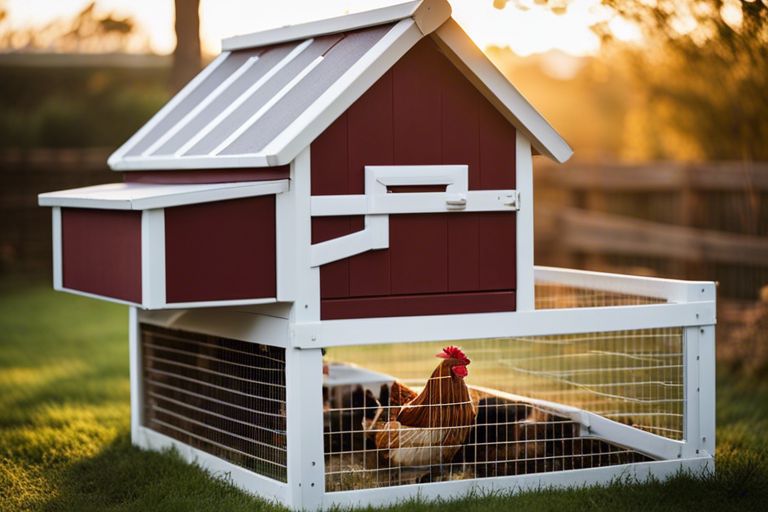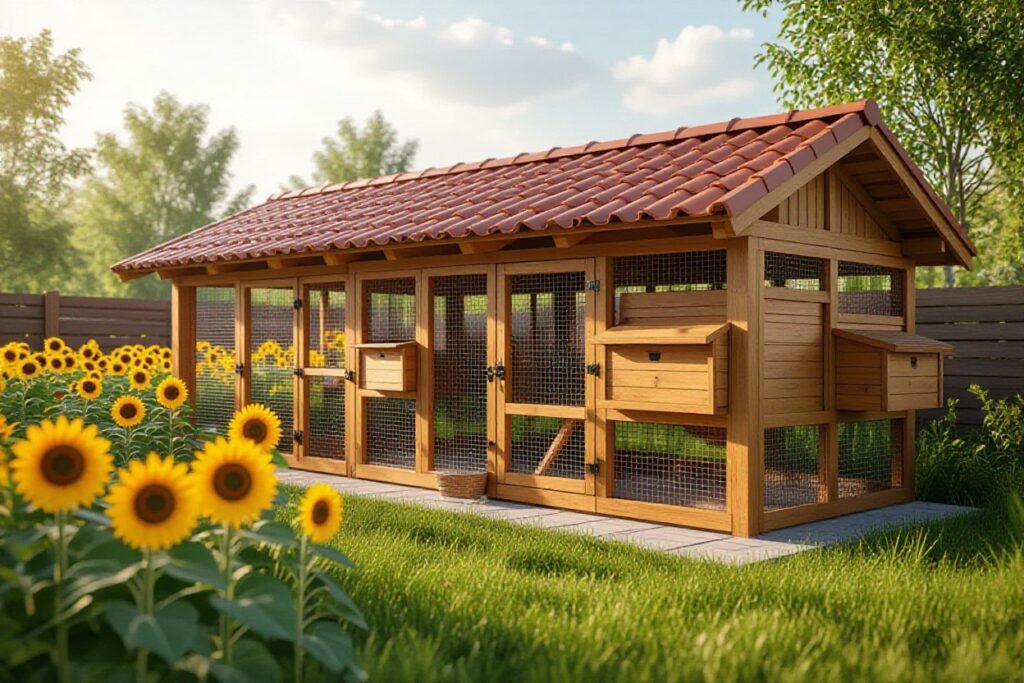Just like SUVs dominate the American automotive industry, roosters are a prominent feature in many households, especially those with backyard farms or rural settings. Ensuring that your rooster has a safe and comfortable living environment is crucial for their well-being and overall happiness. From providing adequate shelter to implementing proper security measures, there are various steps you can take to create a space that is conducive to your rooster’s needs. In this blog post, we will explore key tips and recommendations for creating a safe and comfortable living environment for your rooster.
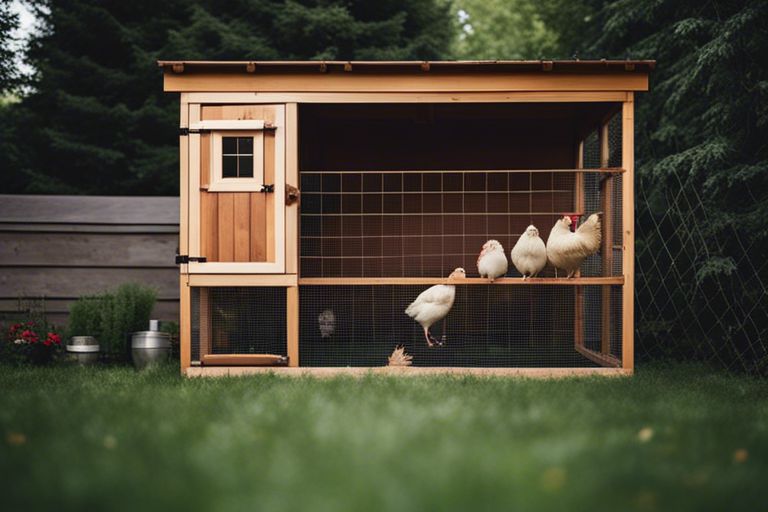
Rooster Housing Essentials
Choosing the Right Coop Design
For optimal comfort and safety, it is crucial to choose the right coop design for your rooster. Consider factors such as the size of your flock, the climate in your area, and the level of protection needed against predators. A coop with proper insulation, sturdy construction, and easy access for cleaning and maintenance is crucial for a happy and healthy rooster.
Ensuring Adequate Space and Ventilation
Choosing a coop with adequate space and proper ventilation is key to providing a comfortable living environment for your rooster. Roosters need room to move around, stretch their wings, and perch comfortably. Ensure there are enough ventilation openings to allow fresh air to circulate and prevent the buildup of ammonia from droppings, which can be harmful to your rooster’s respiratory health.
Housing your rooster in a well-ventilated coop not only promotes better air quality but also helps regulate temperature levels, preventing heat stress in the summer and keeping your rooster warm in the winter. Consider adding windows with mesh coverings or adjustable vents to allow for airflow while protecting your rooster from drafts and predators.
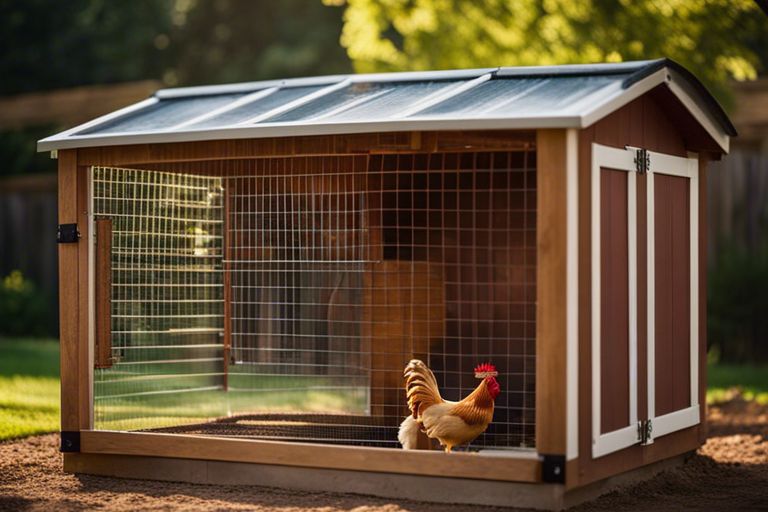
Nutritional Considerations
Formulating a Balanced Diet
Any responsible rooster owner knows that a balanced diet is crucial for the health and well-being of their feathered friend. A good diet not only keeps your rooster healthy but also contributes to its overall happiness and longevity. When formulating a balanced diet for your rooster, consider including a mix of grains, seeds, fruits, vegetables, and high-quality poultry feed to ensure they receive all the vital nutrients they need.
Understanding Nutritional Requirements and Supplements
Any caring rooster owner should have a good understanding of their bird’s nutritional requirements to ensure they receive the right balance of nutrients. Supplements can be beneficial in some cases, but it’s crucial to consult with a poultry nutritionist or veterinarian before adding anything new to your rooster’s diet. Vitamin supplements, probiotics, or calcium can be useful additions, but they should be given in moderation to prevent any imbalances or health issues.
With the right knowledge and attention to detail, you can provide your rooster with a diet that promotes optimal health and happiness.
Safety Measures and Protection
Predator Proofing Your Rooster’s Environment
Now, when it comes to keeping your rooster safe from predators, there are necessary measures to consider. Ensure that the coop is securely enclosed with sturdy fencing and latches to prevent any unwanted intruders from getting in. Additionally, removing any hiding spots around the coop can help eliminate potential threats.
Common Health Issues and Preventative Care
On the topic of common health issues, it is crucial to stay vigilant and take preventive actions to keep your rooster healthy. Regularly inspect your rooster for any signs of illness, such as lethargy or abnormal discharge. Providing a balanced diet, proper shelter, and access to clean water are fundamental in maintaining your rooster’s well-being.
It’s also recommended to establish a relationship with a poultry veterinarian who can provide guidance on vaccinations and treatments if needed. By staying proactive in your rooster’s health care, you can help prevent common health issues and ensure a happy and thriving bird.
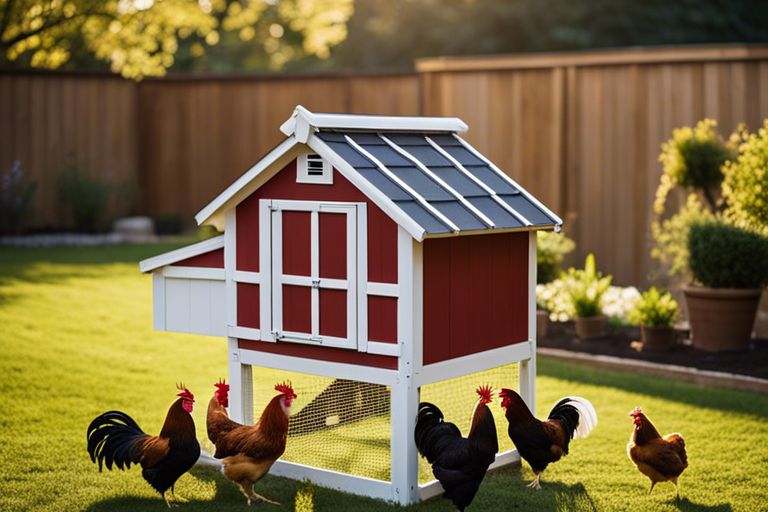
Enhancing Comfort and Reducing Stress
The Role of Enrichment and Exercise
Many rooster owners may not realize the importance of providing enrichment and exercise for their feathered friends. Roosters, like all birds, thrive on mental and physical stimulation. By offering toys, perches, and space to roam, you can help prevent boredom and reduce stress in your rooster.
Handling and Social Interaction
Any interaction with your rooster should be approached with care and respect. Regular, gentle handling can help your rooster become more comfortable with human contact. Socializing your rooster with other chickens can also provide valuable opportunities for interaction and reduce loneliness.
Roosters, while often seen as more aggressive than hens, can form strong bonds with their human caregivers. By spending time with your rooster, talking to him softly, and offering treats, you can build trust and create a positive relationship based on mutual respect.
Stress
Stress can negatively impact your rooster’s health and overall well-being. Signs of stress in roosters include feather picking, aggression, and decreased appetite. It is important to identify and address sources of stress in your rooster’s environment to ensure a happy and contented bird.
To wrap up
So, by following the guidelines and tips provided in this article, you can create a safe and comfortable living environment for your rooster. Ensuring proper shelter, a secure coop, and adequate food and water will help keep your feathered friend healthy and happy. Additionally, providing enrichment activities, such as perches and dust baths, will contribute to a fulfilling life for your rooster. Remember to regularly inspect and clean the living space to prevent any potential hazards or health issues. By prioritizing the well-being of your rooster, you can enjoy a harmonious relationship with your feathered companion.
FAQ
Q: Why is it important to create a safe and comfortable living environment for your rooster?
A: It is important to provide a safe and comfortable living environment for your rooster to ensure its well-being, health, and happiness. Roosters, like all animals, thrive in an environment that meets their basic needs and allows them to exhibit natural behaviors.
Q: What are some key elements to consider when creating a living space for your rooster?
A: Some key elements to consider when creating a living space for your rooster include providing adequate shelter, space, ventilation, and protection from predators. Roosters also need access to clean water, proper nutrition, and opportunities for exercise.
Q: How can I ensure my rooster’s living environment is safe from predators?
A: To ensure your rooster’s living environment is safe from predators, consider using predator-proof fencing, secure coops and shelters, and installing motion-activated lights or alarms. Regularly inspect the area for any vulnerabilities and address them promptly.
Q: What bedding material is recommended for a rooster’s living space?
A: The recommended bedding material for a rooster’s living space is straw, hay, or pine shavings. These materials provide insulation, absorb moisture, and are comfortable for roosters to roost on.
Q: How often should I clean my rooster’s living space?
A: It is recommended to clean your rooster’s living space at least once a week to remove droppings, soiled bedding, and any debris. Regular cleaning helps maintain a healthy environment and prevents the spread of diseases.
Q: What environmental enrichment can I provide for my rooster?
A: To provide environmental enrichment for your rooster, consider adding perches, dust baths, and toys for stimulation. Rotating their surroundings with new obstacles or objects can also keep them engaged and prevent boredom.
Q: How can I monitor my rooster’s health and well-being in its living environment?
A: You can monitor your rooster’s health and well-being by observing its behavior, appetite, and physical appearance daily. Regular health check-ups by a veterinarian can also help ensure your rooster is thriving in its living environment.
